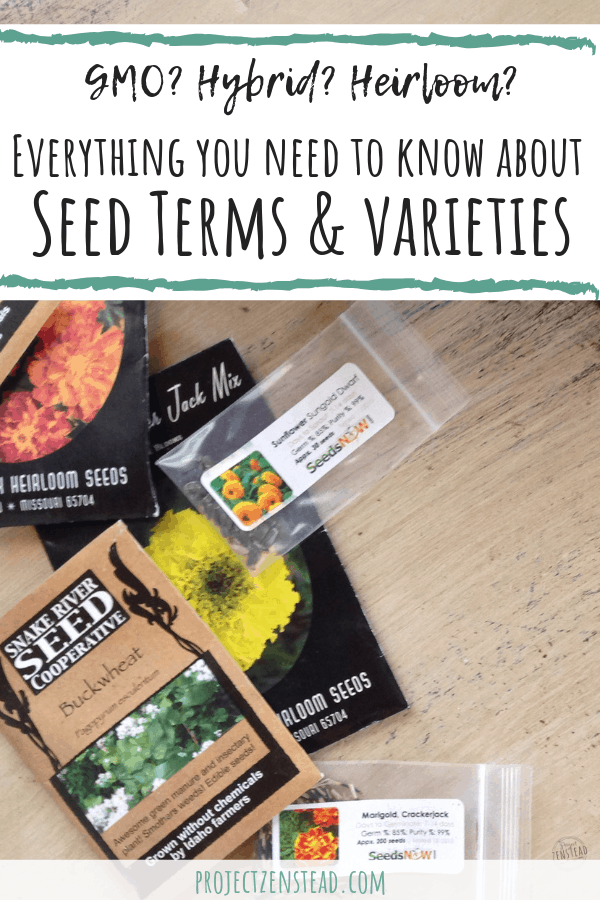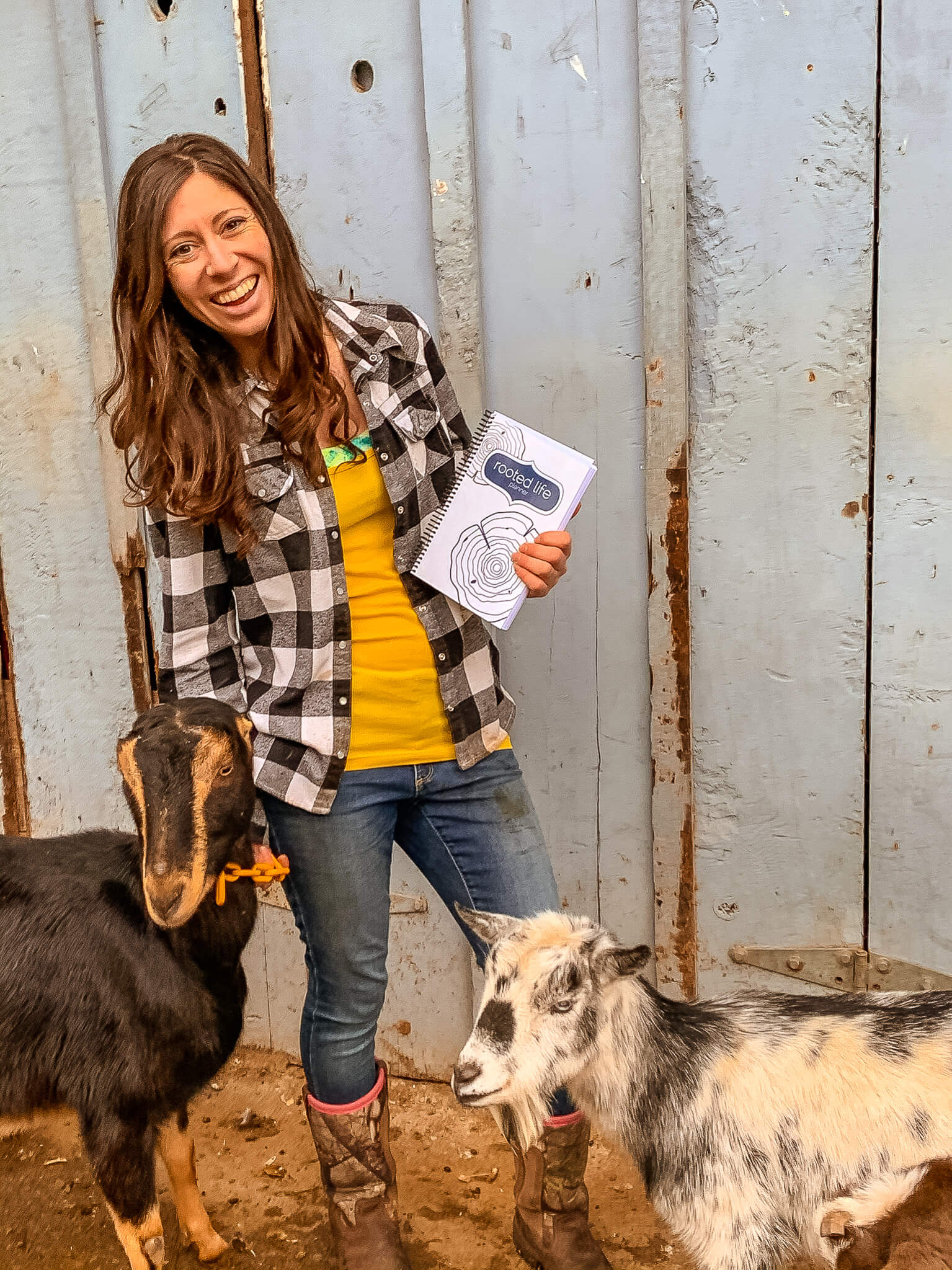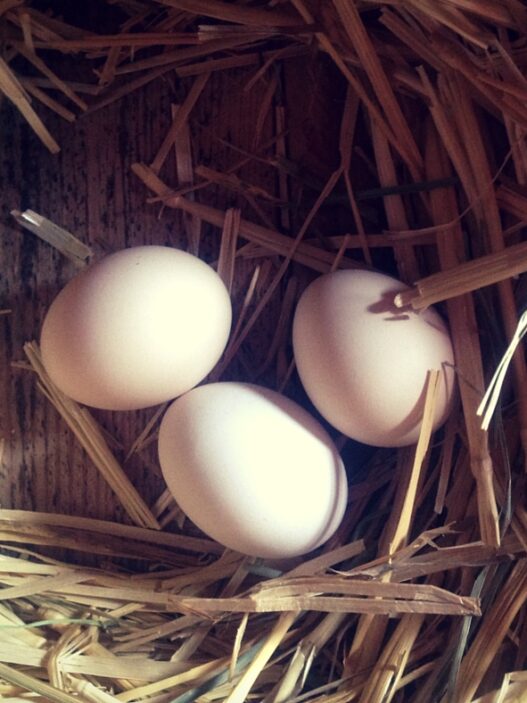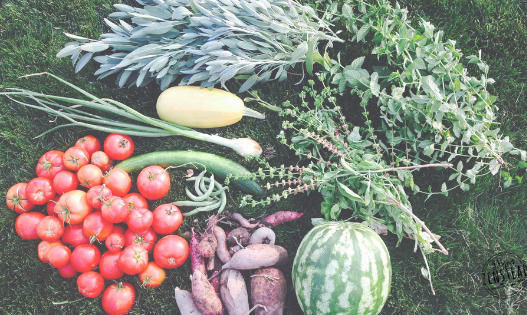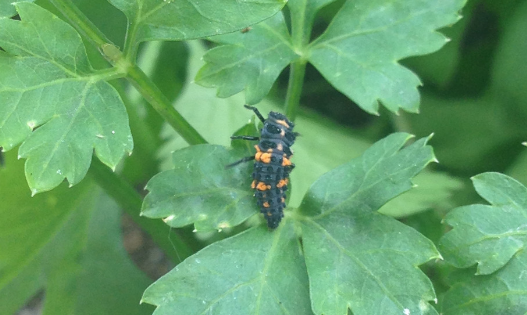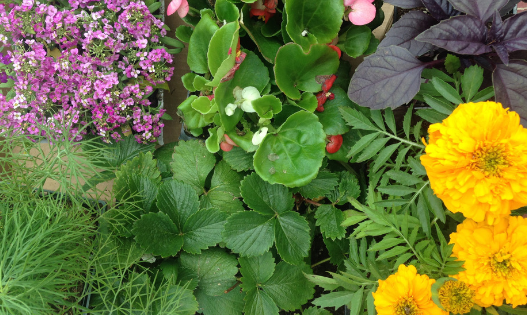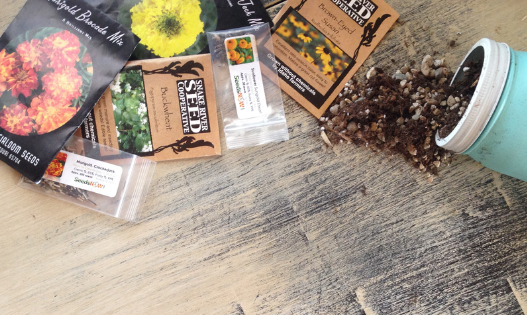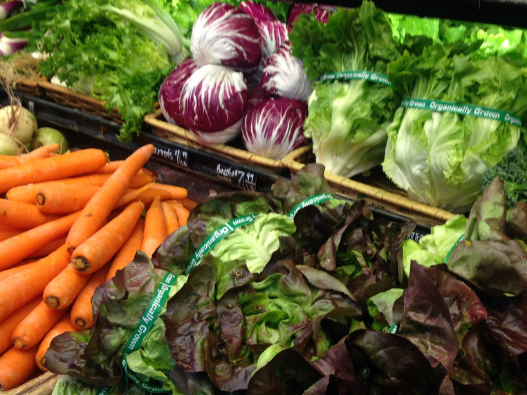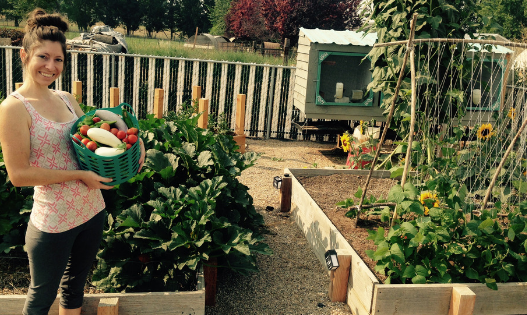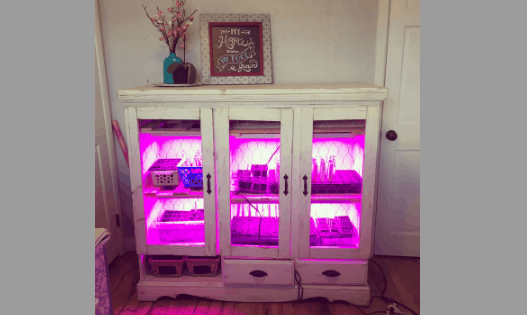Do you wonder what all those seed terms and varieties listed on seed packets actually mean? We are breaking it down so that you can choose the perfect seeds for your garden!
** Affiliate Disclosure: I may receive a commission at no additional cost to you from purchases made through links in this article. Thank you for supporting this blog! Full Disclosure Link **
There is a lot of debate lately over seed varieties and what type of seeds people should be growing. The food that we feed ourselves and our families has a huge impact on our health and quality of life. As science and agriculture continue to advance, it’s important to understand how your food was grown, beginning with the seed. There are bunches of different terms being used to classify and label seed varieties: GMO, organic, open pollinated, hybrid, heirloom… and the list goes on! Have you ever wondered what it all means? I’ve got you covered with this no-fluff, quick and dirty guide to understanding seed varieties. Plus, I’m spilling the beans on my favorite seed producers and giving you a chance to get 10% off when you try them!
Here’s what you need to know about seed terms & varieties:
GMO versus Non-GMO:
GMO stands for “genetically modified organism”. These seeds are developed in a laboratory where certain genes are spliced or inserted into a seed’s DNA to produce a desirable trait. The DNA of GMO seeds can include foreign genetic material to produce a tolerance to a certain chemical or pesticide, such a Round-Up.
Monsanto is the most well-known producer of GMO seeds. Monsanto, and other companies like them, produce and own the patents for crops including alfalfa, soy, corn, wheat, sugar beets, sorghum, cotton, canola, and a couple squash varieties. In my opinion, there is little evidence about the long-term effects that these GMO plants (and the methods used when growing them) may have on the environment or the health of those consuming them.
To learn more about GMO’s versus hybrids, check out this post!
Certified Organic:
“Organic” is a term that refers to the conditions under which a seed or plant is produced. In order for a seed to be labeled “certified organic”, it has to be grown by a certified producer. Certified seeds have not been exposed to chemicals at any point during the growing, harvesting or packaging process. Some organic certifications that you may see on seed packets include the USDA certification and the Oregon Tilth Certification.
Treated:
Treated seeds are seeds that have been exposed to a pesticide, fungicide or other chemical before packaging. The chemical is usually designed to help with early germination, pest and fungus resistance, or other hardiness/growth issues. Common pesticides that seeds are dusted with include captan and thiram. Treated seeds are usually slightly more expensive and are labelled as “treated”.
Raw:
Raw seeds are seeds that have not been treated with any pesticides, fungicides, or chemicals. Raw seeds are not necessarily grown under organic conditions, and therefore cannot always be labeled or certified as “organic”.
Open Pollinated:
Open pollination refers to pollination that takes place through natural methods, such as insects, birds, wind, etc. However, open pollination can also take place with human intervention under natural conditions (rubbing the pollen from one plant against another plant). This type of pollination can naturally take place between different plant varieties, and because of that, you can end up with slightly different variations within the species. Since this is a natural process, the seeds will remain very similar season to season. For this reason, many seed-savers will choose to grow from open pollinated seeds only.
Open Source:
Open source seeds are a relatively new concept. The idea was developed under the Open Source Seed Initiative. Open source seeds are seeds that cannot be patented or protected. They are available for use by anyone who agrees to use them without restricting the access to the seed or any future generations of the seed. This initiative began with the intent of ensuring that small farmers and gardeners have access to free-use seeds that can be saved and shared without restriction.
Heirloom:
Heirloom seeds are seed lines that have developed and been passed down over years and years, usually within a specific nation, community, or family. Heirloom seeds are prized because the seeds have a long history of naturally producing a desired characteristic year after year for generations. It is also important to note that while heirloom seeds are openly pollinated, not all plants that are openly pollinated can be classified as heirlooms because they don’t have the established breeding history that an heirloom seed does.
Hybrid:
Hybrid plants are bred from two different plant varieties in order to produce a certain trait(s) from each of the parent plants. Often, hybrid plants are bred to produce a hardiness or a resilience of some form. They are usually hand-pollinated, meaning that a person is responsible for the intentional pollination between the two plants. This process usually takes place in a greenhouse, nursery, or field. Unlike an heirloom or open pollinated seed, if you replant a seed that has been saved from a hybrid plant, it will have different characteristics and genetics than the parent plant.
To learn more about GMO’s versus hybrids, check out this post!
Growing Conditions vs. Heritage:
On a final note, it’s important to realize the classification differences between a seed’s growing conditions and a seed’s heritage. For instance, “organic” is a term used to describe the conditions under which a seed or plant is grown. On the other hand, “hybrid” is a term that refers to a plant’s breeding or heritage. It is important to realize these distinctions as it is possible to grow a plant that is organic and also a hybrid. However, there may be another hybrid plant that is the same variety of plant, but was not grown under organic conditions and cannot be labeled “organic”. You will find that a lot of categories overlap. For instance, one seed could easily be labeled organic, heirloom and openly pollinated if it meets the criteria for all three.
Now, let’s talk about one of my new favorite seed company: SeedsNow!
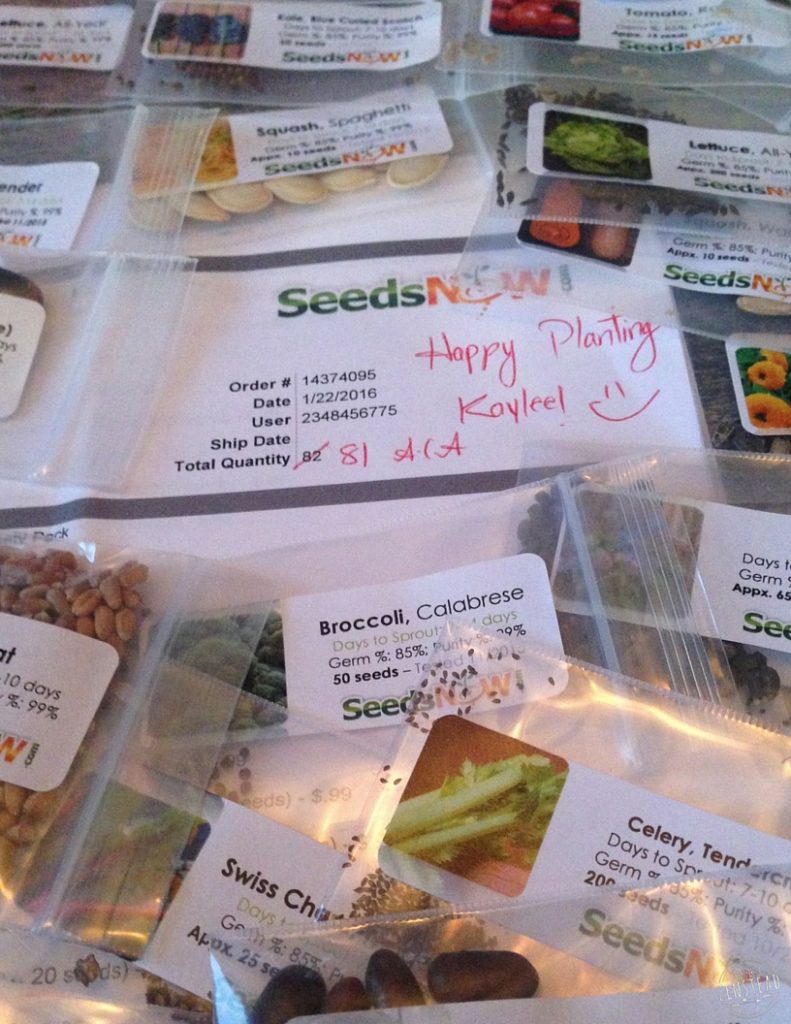 I tend to spend the winter months endlessly searching online for cool seed companies. This winter, I came across a company called SeedsNow! After researching the company some more, I was delighted to find that they only sell pure, non-GMO, open pollinated, untreated seeds.
I tend to spend the winter months endlessly searching online for cool seed companies. This winter, I came across a company called SeedsNow! After researching the company some more, I was delighted to find that they only sell pure, non-GMO, open pollinated, untreated seeds.
Their seeds are pretty much a seed-saver’s dream: they are all heirloom varieties and are non-hybrids that are delivered in resealable mylar baggies to help protect your seeds from light and moisture. For the hot-n-heavy seed savers out there, they also sell seed vaults that protect seeds for 5+ years. I was even more delighted to find that they are family owned…and it shows!
When I placed my first order (about 80 sampler sized seed packets), they arrived within a couple days and the invoice had been hand-marked to ensure all the items were included in my oder. There was even note that said “Happy planting, Kaylee” hand-written on the invoice! I have ordered from them multiple times already this season and I must say that I am hooked!
Some of my favorite products are the sampler-sized seed packets that only cost $0.99! It’s a great way to try a variety of new plants without investing a lot. I also love their “all-in-one” variety packs which come with an assortment of seeds that all serve a certain purpose. I ordered the backyard chicken variety pack, the herbal medicine variety pack and the lettuce variety pack. I also can’t wait to try their hydroponics variety pack and the mosquito repellent variety pack! If you want to try it out some of their awesome seeds too, you can save 10% using the discount code below! Happy planting!
Read about some of my other favorite seed companies here!



